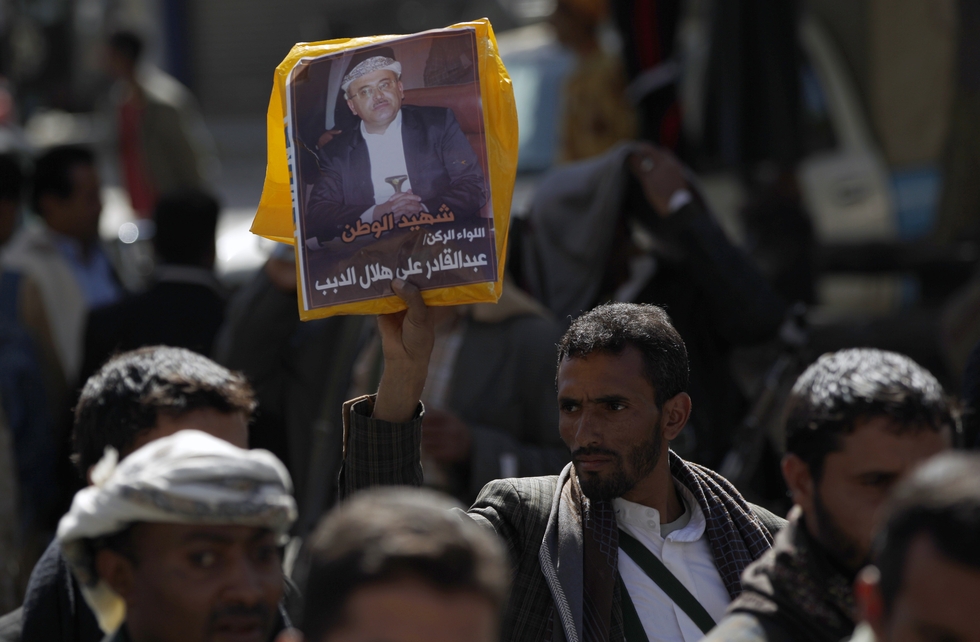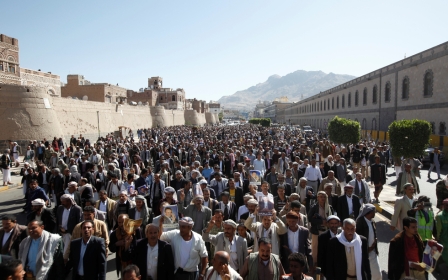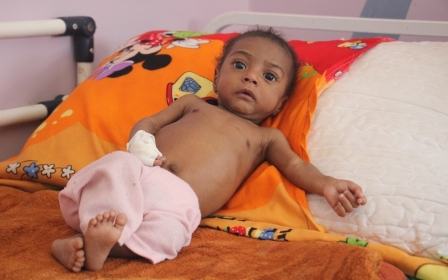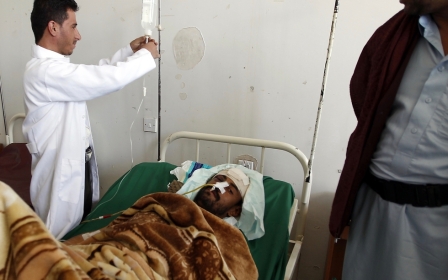Houthis fire missile at Saudi base after deadly Yemen raid

Yemeni rebels have fired a missile at the main Saudi air base used by the Arab coalition in its bombing campaign but it was intercepted, the coalition said on Wednesday.
It was the second such missile launch since a coalition air strike killed more than 140 people attending a wake for the father of a rebel leader in the Yemeni capital Sanaa on Saturday prompting threats of revenge.
Air defence forces "intercepted a ballistic missile, launched by the Houthi militias toward the city of Khamis Mushait and destroyed it without any damage," a coalition statement said.
Khamis Mushait is home to an air base which has been at the forefront of the coalition bombing campaign against Houthi rebels and their allies.
It is about 100km from the Yemeni border.
Saudi warplanes targeted the launch site after the missile firing, the coalition said.
The attempted rebel strike marks at least the fifth time they have tried to hit Khamis Mushait since the coalition began its bombing campaign in support of the Yemeni government in March last year.
On Sunday, rebels launched a missile against another Saudi air base, in the city of Taif, 500 kilometres from the Yemeni border, but it too was shot down.
Saudi authorities also announced on Wednesday that it would ease its 18-month air blockade of Houthi-held areas of Yemen to allow the evacuation of the hundreds of people wounded in the funeral air strike.
At least 525 were wounded, according to the United Nations, making it one of the bloodiest attacks since the Saudi-led coalition was formed.
More than 300 are in critical condition and need medical treatment abroad, the spokesman for the rebel-run health authority in Sanaa, Tamim al-Shami said on Sunday.
King Salman instructed aid officials to coordinate with the coalition and the Saudi-backed Yemeni government "to facilitate the evacuation of those wounded... and needing treatment abroad," the official Saudi Press Agency reported.
The coalition has enforced an air and sea blockade on rebel areas since the start of its bombing campaign, with exceptions made only for UN flights and UN-supervised aid deliveries, most of them through the Red Sea port of Hodeida.
The rebel-controlled civil aviation authority in the Yemeni capital had called on the United Nations on Tuesday to "act quickly and seriously to end the air blockade imposed on Sanaa airport in order to save the lives of hundreds wounded."
The coalition initially denied responsibility for Saturday's air strike but after condemnation from Western governments, it promised an investigation of the "regrettable and painful" incident.
A letter sent to the UN Security Council on Sunday "expressed the kingdom's deep regret" over the "attack", state media reported the following day.
"It also renewed its full respect for and commitment to international humanitarian law and international human rights law, and the emphasis on continuing to ensure the taking of all possible measures to protect civilians and civilian sites in Yemen".
The coalition has faced mounting international criticism over the civilian casualties from its bombing campaign.
Washington has also come under increasing pressure over the intelligence and logistics support it has provided.
More than 6,800 people have been killed in Yemen since the coalition started its campaign.
More than two-thirds of them have been civilians, most of them killed in coalition air strikes.
Middle East Eye propose une couverture et une analyse indépendantes et incomparables du Moyen-Orient, de l’Afrique du Nord et d’autres régions du monde. Pour en savoir plus sur la reprise de ce contenu et les frais qui s’appliquent, veuillez remplir ce formulaire [en anglais]. Pour en savoir plus sur MEE, cliquez ici [en anglais].




